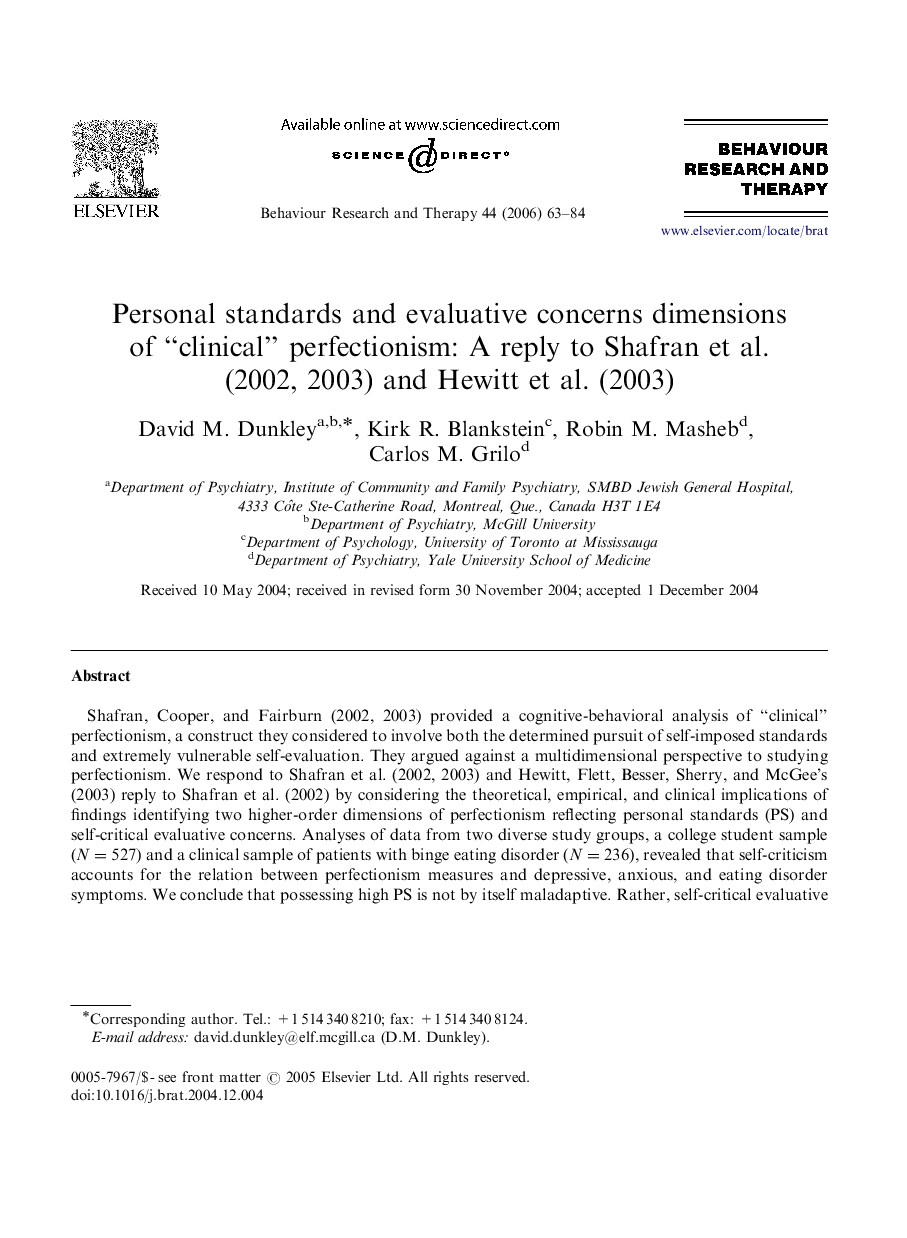| Article ID | Journal | Published Year | Pages | File Type |
|---|---|---|---|---|
| 902424 | Behaviour Research and Therapy | 2006 | 22 Pages |
Shafran, Cooper, and Fairburn (2002, 2003) provided a cognitive-behavioral analysis of “clinical” perfectionism, a construct they considered to involve both the determined pursuit of self-imposed standards and extremely vulnerable self-evaluation. They argued against a multidimensional perspective to studying perfectionism. We respond to Shafran et al. (2002, 2003) and Hewitt, Flett, Besser, Sherry, and McGee's (2003) reply to Shafran et al. (2002) by considering the theoretical, empirical, and clinical implications of findings identifying two higher-order dimensions of perfectionism reflecting personal standards (PS) and self-critical evaluative concerns. Analyses of data from two diverse study groups, a college student sample (N=527) and a clinical sample of patients with binge eating disorder (N=236), revealed that self-criticism accounts for the relation between perfectionism measures and depressive, anxious, and eating disorder symptoms. We conclude that possessing high PS is not by itself maladaptive. Rather, self-critical evaluative tendencies are more relevant than PS to the critical processes Shafran et al. (2002) suggested contribute to the maintenance of clinical perfectionism.
